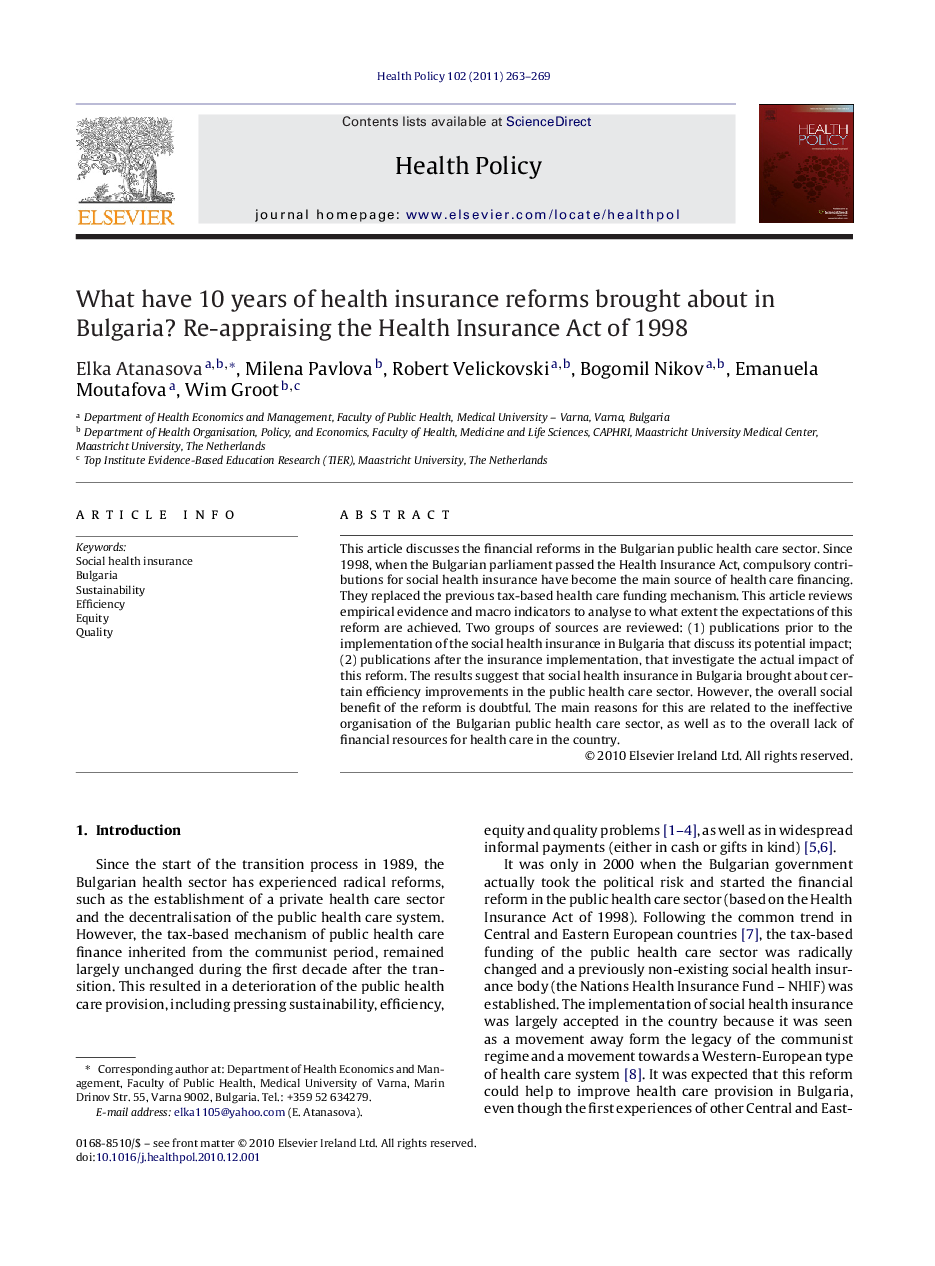| Article ID | Journal | Published Year | Pages | File Type |
|---|---|---|---|---|
| 4198124 | Health Policy | 2011 | 7 Pages |
This article discusses the financial reforms in the Bulgarian public health care sector. Since 1998, when the Bulgarian parliament passed the Health Insurance Act, compulsory contributions for social health insurance have become the main source of health care financing. They replaced the previous tax-based health care funding mechanism. This article reviews empirical evidence and macro indicators to analyse to what extent the expectations of this reform are achieved. Two groups of sources are reviewed: (1) publications prior to the implementation of the social health insurance in Bulgaria that discuss its potential impact; (2) publications after the insurance implementation, that investigate the actual impact of this reform. The results suggest that social health insurance in Bulgaria brought about certain efficiency improvements in the public health care sector. However, the overall social benefit of the reform is doubtful. The main reasons for this are related to the ineffective organisation of the Bulgarian public health care sector, as well as to the overall lack of financial resources for health care in the country.
